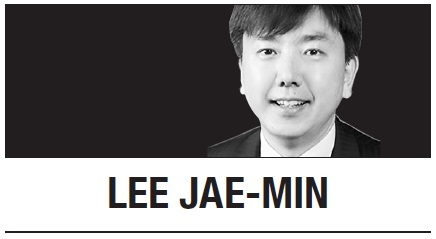 Nobody knows for sure what GM’s plan is. Maybe the US automaker is just adjusting its business in Korea by closing an underperforming manufacturing plant in Gunsan City, or perhaps it is taking a first step to fold its Korean business entirely. Rumors and conjectures have swirled around the country since the automaker’s latest decision to shutdown the Gunsan factory, but there is no knowing the exact reason of the decision or future plans of the multinational corporation. The government is trying to talk to GM to address the automaker’s concern and is eager to hear reassurance of its commitment to the Korean market. Hopefully, the discussion works and the US corporation decides to stay in Korea.
Nobody knows for sure what GM’s plan is. Maybe the US automaker is just adjusting its business in Korea by closing an underperforming manufacturing plant in Gunsan City, or perhaps it is taking a first step to fold its Korean business entirely. Rumors and conjectures have swirled around the country since the automaker’s latest decision to shutdown the Gunsan factory, but there is no knowing the exact reason of the decision or future plans of the multinational corporation. The government is trying to talk to GM to address the automaker’s concern and is eager to hear reassurance of its commitment to the Korean market. Hopefully, the discussion works and the US corporation decides to stay in Korea.Thus far national reactions have been rather emotional. As surprising and embarrassing as it may be, this is no time for panic. It is time to play it cool. Prevalent in media reports are two aspects of what may be called ‘anachronistic’ sentiments.
First of all, when a foreign investor contemplates and then decides to close its business and depart, there is little a host county can do. Such a decision must be based on dozens of reasons and scores of considerations. Maybe the foreign market has lost its appeal. Maybe a better option has emerged elsewhere. Or the foreign investor just wants to scale down its offshore subsidiaries. If the foreign investor believes departure makes sense in terms of its business, it will pack up no matter what the host government does. At this point, fretting and begging won’t help. Presenting calm business calculation will.
In today’s global business environment, no assumption could be farther from the reality than the one that a foreign corporation can or should stay in another country for eternity. How hardly do we believe that Samsung will stay in Vietnam or LG will reside in Mexico forever. And even Korean corporations leave the country and go abroad for better business packages. GM’s decision -- whatever it may be -- should be viewed from the same perspective. Criticizing a foreign corporation’s departure as some sort of a betrayal does not fit with today’s globalized world.
Certainly, efforts should be made to explain why staying in Korea is a win-win situation. Earnest persuasion should be exhausted. But at the end of the day, the decision is for the foreign corporation.
Secondly and more importantly, criticizing a foreign investor for making significant revenues, in and of itself, through its business operation is also out of tune with the reality of the global business environment. Unless illegal activities are implicated, corporations are supposed to pursue the objective to maximize their business interest. Local newspapers are already reporting, in a critical tone, that the US corporation has made a return of several times its original investment. Even if the calculation is accurate, this should not be something to be criticized, supposing all activities and transactions have taken place within the bounds of applicable laws and regulations. Again, imagine similar situations against Korean companies in foreign countries.
This business-as-usual, cool-head approach will help us see it through and make a wise decision at this juncture. In the meantime, whatever outcome comes out of this negotiation with GM, Korea should contemplate on how to improve its business environment for foreign corporations. Imperative in this respect is the self-assessment whether this latest development is the reflection of the observation of foreign corporations operating in Korea that Seoul’s business environment has deteriorated over the years while that of other countries has improved. If so, a remedial action needs to be taken, to stay competitive.
Providing hurried financial incentive packages in return for a promise to stay, without addressing core issues on both sides, will not solve the problem. It will only postpone the problem. When the money runs out, mentions of departure will re-emerge.
Lee Jae-min
Lee Jae-min is a professor of law at Seoul National University. He can be reached at jaemin@snu.ac.kr. -- Ed.
-
Articles by Korea Herald







![[KH Explains] How should Korea adjust its trade defenses against Chinese EVs?](http://res.heraldm.com/phpwas/restmb_idxmake.php?idx=644&simg=/content/image/2024/04/15/20240415050562_0.jpg&u=20240415144419)











![[Today’s K-pop] Stray Kids to return soon: report](http://res.heraldm.com/phpwas/restmb_idxmake.php?idx=642&simg=/content/image/2024/04/16/20240416050713_0.jpg&u=)